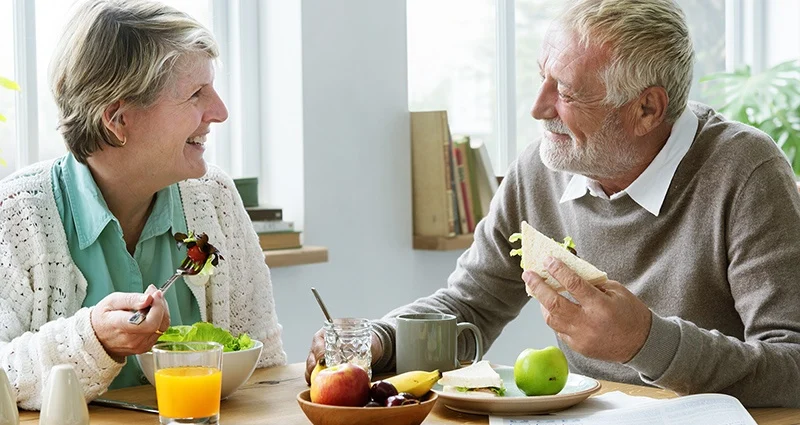AA

Just like any other person, our seniors should be eating a well-balanced diet consisting
of carbohydrates (rice, potatoes, or pasta), proteins (fish, chicken, eggs, or cheese),
fibres (fresh fruit and vegetables), and fluids (water, soup broth, etc.).
Suppose the person faces barriers to eating a nutritional meal. In that case, you should
have them talk to their doctor about adding supplements to their meal routine. This is
also an excellent time to ask if any medications the person may be on could be a factor
for their decreasing appetite.
Many health conditions can restrict seniors from using certain spices, such as salt,
making their food seem bland. This can decrease their appetite. However, there are
many ways to keep your food flavourful without overloading it with lots of salt. Try
experimenting with different flavours like garlic, lemon, or basil. Try a chipotle or
cayenne pepper on your next chicken meal if you're feeling adventurous.
Increase the appetite by eating with friends. It's known that people eat more in quantity
and have healthier meals when they're in good company. So, gather with your loved
ones often and share an excellent nutritious meal with one another. Another thing we
can encourage people to do that will help increase their appetite is to go for a short walk
before each meal. This stimulates the appetite and helps fight back against a common
condition that causes loss of appetite in many seniors: depression.
